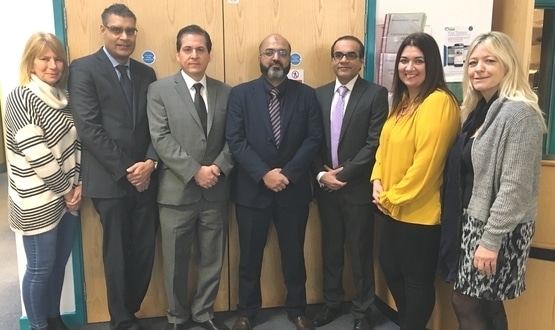George Eliot Hospital in Nuneaton has been recognised as a Quality Data Provider by the National Joint Registry (NJR) for its high standards of patient safety, after successfully completing a national programme of data audits.
The NJR monitors the performance of hip, knee, ankle, elbow and shoulder joint replacement operations to improve clinical outcomes for the benefit of patients, clinicians and industry.
The registry collects orthopaedic data with a view of gaining insights to support patient safety, standards in quality of care, and overall cost effectiveness in joint replacement surgery.
The NJR Quality Data Provider certificate scheme is designed to offer hospitals a blueprint for reaching standards relating to patient safety and reward those who have met registry targets in this area.
The scheme benefits hospitals and the NJR by helping recognise and reward best practice; increase engagement and awareness of the importance in quality data collection; and help embed the ethos that better data ultimately leads to better care.
Registry data provides an important source of evidence for regulators such as the Care Quality Commission (CQC).
NJR targets necessitate having a high level of patients consenting for their details to be included in the registry, and for demonstrating timely responses to any alerts issued by the NJR in relation to patient safety concerns, if necessary.
George Eliot Hospital Medical Director, Catherine Free said: “The care and safety of all our patients is extremely important to the trust and something that all our staff take very seriously.
“We fully support the National Joint Registry’s work in facilitating improvement in clinical outcomes and governance for the benefit of joint replacement patients and we’re delighted to be awarded as a ‘NJR Quality Data Provider’.”
Martyn Porter, NJR medical director, added: “It is clear that for surgeons and patients alike, the necessity for having accurate and complete data is an absolute requirement.
“The Quality Data Provider award continues to go from strength to strength and highlights the number of hospitals who are now fully engaged with the NJR’s data completeness programme.”

